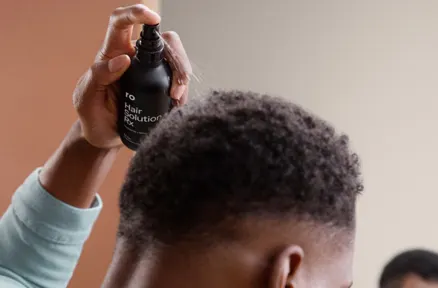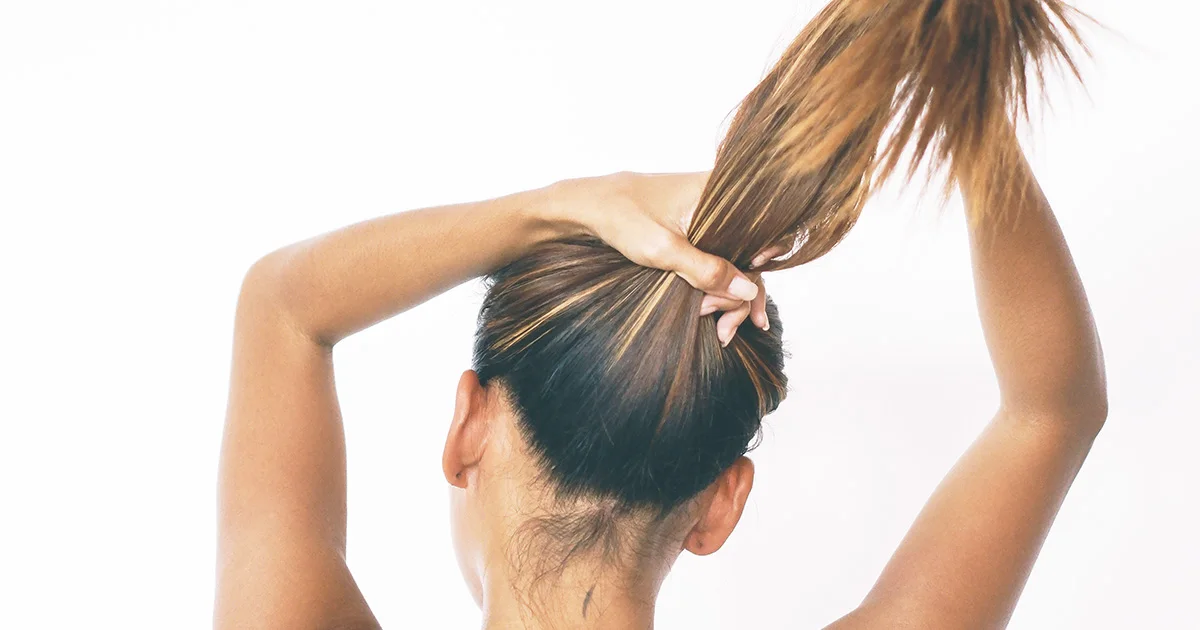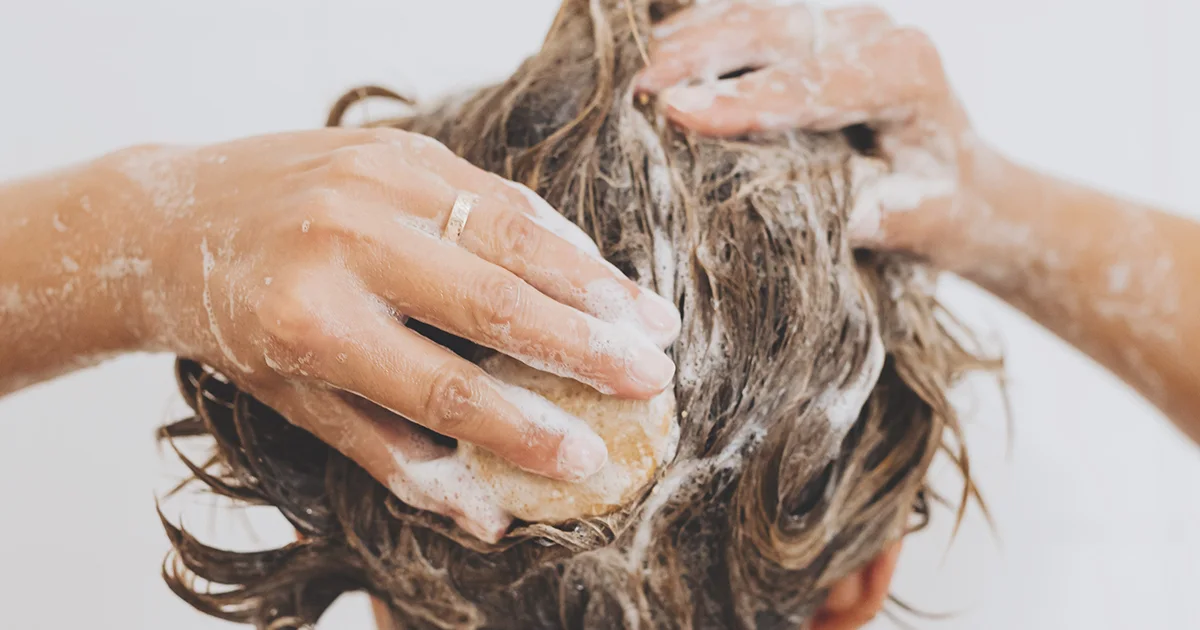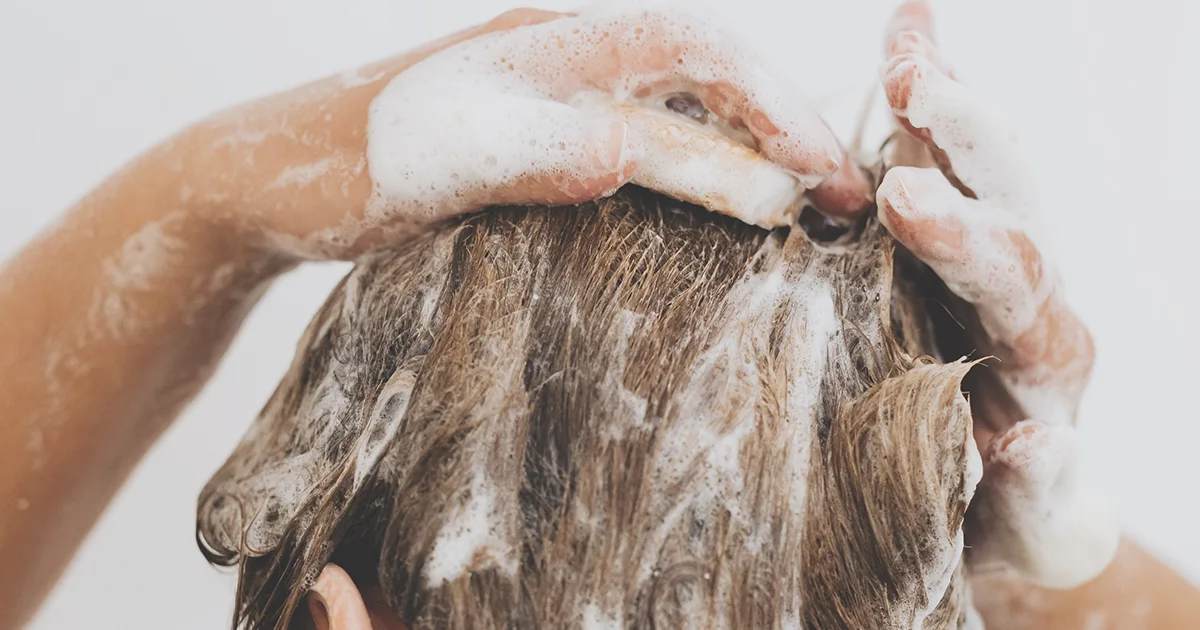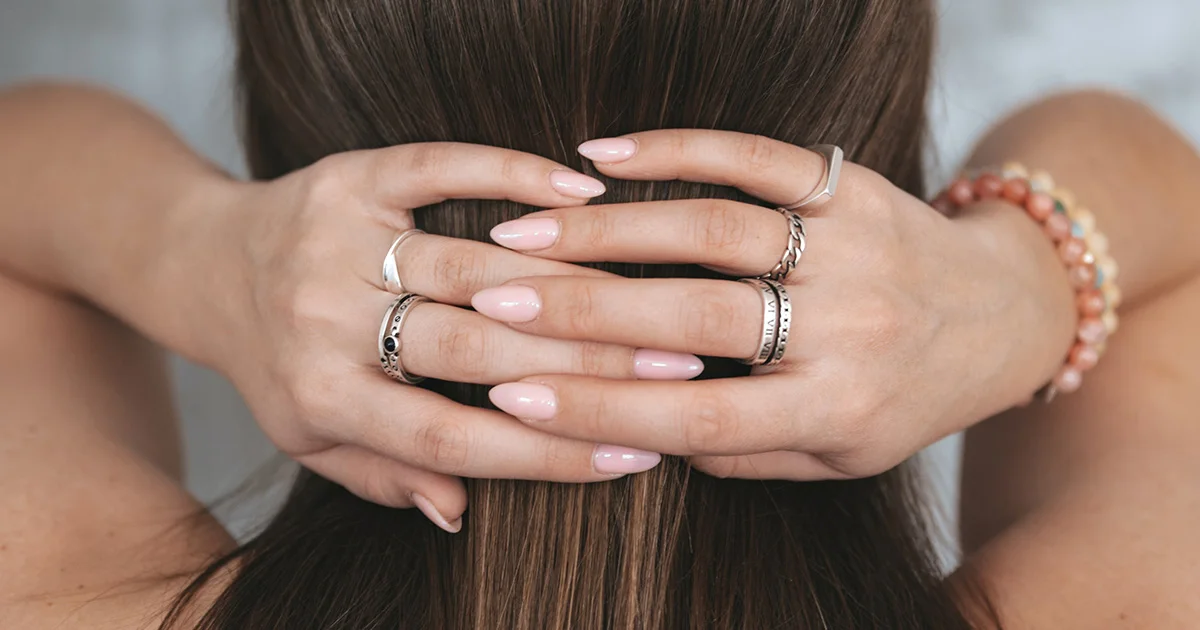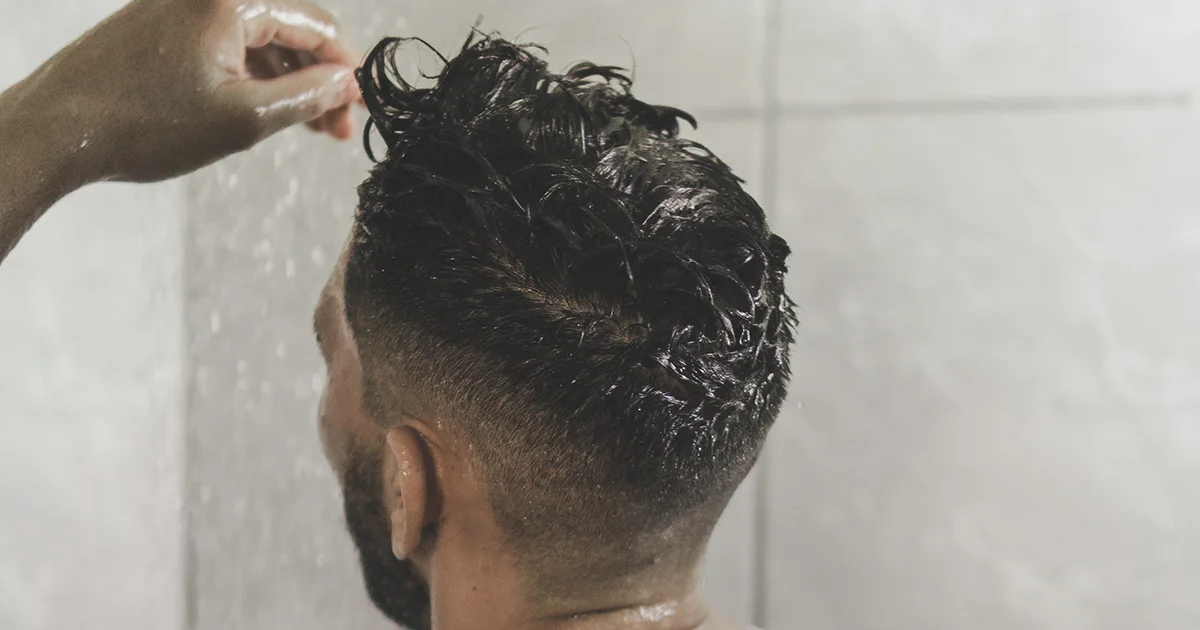Here's what we'll cover
Here's what we'll cover
Here's what we'll cover
The sheer quantity of potions and lotions on the market that claim to improve hair growth speaks to just how important having thick hair is to so many people. So, it’s no surprise that people seek out all sorts of creative solutions to improve their hair growth, including using oil.
But can oils really help you grow longer, thicker hair, or even reverse hair loss? Keep reading to learn what science says about castor, coconut, rosemary, tea tree, and other oils many claim can help you regain your luscious locks.
Does oil for hair growth work?
Evidence is mixed about whether oils actually help with hair growth. It will take a lot more research to better understand different oils and how they may help reduce hair loss and boost hair growth. Many essential oils have only been tested on animals, and until they’re tested in humans, it’s hard to know if they’d have the same effect on us that they do on our four-legged friends.
Ultimately, using oils for hair growth may be most effective when combined with first-line treatments like minoxidil, which has been clinically proven to stop and reverse hair loss.
Oral Minoxidil Important Safety Information: Read more about serious warnings and safety info.
Castor oil for hair growth
There isn’t enough research on applying castor oil topically to know whether it can help with hair growth, but there are anecdotal reports. Some Reddit users report that applying it daily or every other day has helped them regrow their hair. Users are judging this on different things, but a range of reports claim longer hair, thicker hair, a narrower part, and more baby hairs after consistently using the oil.
Most of the Reddit users who have had success with castor oil for hair growth report applying it as closely to the scalp as possible. Some massage the oil in, others don’t. People have experienced hair growth by letting it sit for several hours before washing it out, others by leaving it in overnight. It’s worth noting that Reddit includes several reports of hair loss after using castor oil for hair growth, so you may want to test it on a small patch before applying it to your whole scalp.
Coconut oil for hair growth
Our hair is made up of proteins called keratins (Hoover, 2021). Damaged and undamaged hair can lose these proteins, making it weaker over time. But one study found that topical application of coconut oil as a pre- and post-wash treatment significantly reduced protein loss from both damaged and undamaged hair when other oils did not (Rele, 2003). If your hair is stronger, it may be less prone to breakage, which may improve hair growth.
Essential oils for hair growth
You may see lavender oil, cedarwood oil, and peppermint essential oil promoted for regrowing hair, but we don’t have enough evidence that these oils work. Researchers used lavender and cedarwood essential oils in a combination treatment for hair loss in people with alopecia, and while the study was small, the oils seemed to help (Hay, 1998). Similarly, peppermint oil shows promise in animal studies but hasn’t yet been shown to help with hair growth in humans (Oh, 2014; Ahn, 2020).
Here’s what we know may work based on research done on humans.
Rosemary oil for hair growth
Rosemary oil has been shown to regrow hair in combination with other oils and on its own. It was specifically studied in alopecia areata, an autoimmune condition that causes hair loss (Hay, 1998).
But research has also compared rosemary essential oil to minoxidil. One small study found that rosemary oil was as effective as 2% minoxidil for hair growth after six months of consistent treatment and caused less itchiness than the clinically-proven minoxidil (Panahi, 2015).
That doesn’t mean rosemary oil is more effective overall, though. Minoxidil comes in 2% and 5% concentrations, so a higher concentration of minoxidil may be more effective in the long run.
Tea tree oil for hair growth
Research hasn’t proven that tea tree oil alone can help with hair growth, but this essential oil may help boost the effects of minoxidil. One study showed that combining tea tree oil with an antinflammatory and minoxidil worked more effectively for hair growth than minoxidil alone in people with alopecia (Sakr, 2012).
Other types of oil for hair growth
There’s potential for a couple of other oils to help with hair growth, but as with many other oils, we need more research to understand how they affect hair.
Horsetail oil is one oil that may help with hair growth. Researchers combined horsetail oil with other ingredients in an oral tablet, and women with thinning hair took the tablet daily for three months. Those who took the tablets experienced more healthy hair growth and less hair shedding than participants who did not (Ablon, 2015). More research needs to be done on horsetail oil’s effects on hair by itself.
Cannabidiol (CBD) oil shows some promise for helping regrow hair, but this is another area where we need more research. One small study found increased hair growth in participants who applied CBD oil to their scalps every day for six months. More extensive research is needed, but this small study found this treatment to be more effective for men than women (Smith, 2021).
What’s the best oil for hair growth?
We don’t have enough research to say that any oil is “best” for hair growth, but the one we have the most promising research on so far is rosemary oil.
You’ll also likely get better results if you pair your oil treatment with another clinically-proven treatment, such as minoxidil or finasteride (Propecia). Since research shows that rosemary oil combined with minoxidil is more effective than the medication alone, rosemary essential oil may be a good place to start.
No matter what you decide, know that your best bet for dealing with hair loss is to speak with your healthcare provider about your options. They also may be able to give you tips for using oils in addition to other treatments.
Finasteride Important Safety Information: Read more about serious warnings and safety info.
DISCLAIMER
If you have any medical questions or concerns, please talk to your healthcare provider. The articles on Health Guide are underpinned by peer-reviewed research and information drawn from medical societies and governmental agencies. However, they are not a substitute for professional medical advice, diagnosis, or treatment.
References
Ablon, G. (2015). A 3-month, randomized, double-blind, placebo-controlled study evaluating the ability of an extra-strength marine protein supplement to promote hair growth and decrease shedding in women with self-perceived thinning hair. Dermatology Research and Practice : 1-8. doi:10.1155/2015/841570. Retrieved from https://www.hindawi.com/journals/drp/2015/841570/
Ahn, S., Lee, J. Y., Choi, S. M., et al. (2020). A mixture of tocopherol acetate and L-menthol synergistically promotes hair growth in C57BL/6 mice. Pharmaceutics ; 12 (12): 1234. doi:10.3390/pharmaceutics12121234. Retrieved from https://www.mdpi.com/1999-4923/12/12/1234
Aksoz, E., Korkut, O., Aksit, D., & Gokbulut, C. (2020). Vitamin E (α, β + γ and δ tocopherol) levels in plant oils. Flavour and Fragrance Journal ; 35 (5): 504-510. doi:10.1002/ffj.3585. Retrieved from https://onlinelibrary.wiley.com/doi/abs/10.1002/ffj.3585
Alookaran, J. & Tripp, J. (2021). Castor oil. StatPearls . Retrieved on Mar. 20, 2022 from https://www.ncbi.nlm.nih.gov/books/NBK551626/
Beoy, L. A., Woei, W. J., & Hay, Y. K. (2010). Effects of tocotrienol supplementation on hair growth in human volunteers. Tropical Life Sciences Research ; 21 (2): 91-99. Retrieved from https://www.ncbi.nlm.nih.gov/pmc/articles/PMC3819075/
Hay, I. C., Jamieson, M., & Ormerod, A. D. (1998). Randomized trial of aromatherapy. Successful treatment for alopecia areata. Archives of Dermatology ; 134 (11): 1349-1352. doi:10.1001/archderm.134.11.1349. Retrieved from https://pubmed.ncbi.nlm.nih.gov/9828867/
Hoover, E., Alhajj, M., & Flores, J. L. (2021). Physiology, Hair. StatPearls . Retrieved from https://www.ncbi.nlm.nih.gov/books/NBK499948/
Huang, C. H., Fu, Y., & Chi, C. C. (2021). Health-related quality of life, depression, and self-esteem in patients with Androgenetic Alopecia. JAMA Dermatology ; 157 (8): 963-970. doi:10.1001/jamadermatol.2021.2196. Retrieved from https://jamanetwork.com/journals/jamadermatology/article-abstract/2781706
Oh, J. Y., Park, M. A., & Kim, Y. C. (2014). Peppermint oil promotes hair growth without toxic signs. Toxicological Research ; 30 (4): 297-304. doi:10.5487/tr.2014.30.4.297. Retrieved from https://link.springer.com/article/10.5487/TR.2014.30.4.297
Panahi, Y., Taghizadeh, M., Marzony, E. T., & Sahebkar, A. (2015). Rosemary oil vs minoxidil 2% for the treatment of androgenetic alopecia: a randomized comparative trial. Skinmed; 13 (1): 15-21. Retrieved from https://pubmed.ncbi.nlm.nih.gov/25842469/
Prie, B. E., Iosif, L., Tivig, I., et al. (2016). Oxidative stress in androgenetic alopecia. Journal of Medicine and Life ; 9 (1): 79-83. Retrieved from https://www.ncbi.nlm.nih.gov/pmc/articles/PMC5152608/
Rele, A. S. & Mohile, R. B. (2003). Effect of mineral oil, sunflower oil, and coconut oil on prevention of hair damage. Journal of Cosmetic Science ; 54 (2): 175–192. Retrieved from https://pubmed.ncbi.nlm.nih.gov/12715094/
Sakr, F. M., Gado, A., Mohammed, H., & Ismail, A. A. (2012). Preparation and evaluation of a multimodal minoxidil microemulsion versus minoxidil alone in the treatment of androgenic alopecia of mixed etiology: A pilot study. Drug Design, Development and Therapy , 2013 (7): 413-423. doi:10.2147/dddt.s43481. Retrieved from https://www.dovepress.com/preparation-and-evaluation-of-a-multimodal-minoxidil-microemulsion-ver-peer-reviewed-fulltext-article-DDDT
Smith, G. & Satino, J. (2021). Hair regrowth with cannabidiol (cbd)-rich hemp extract – a case series. Cannabis ; 4 (1): 53-59. doi:10.26828/cannabis/2021.01.003. Retrieved from https://publications.sciences.ucf.edu/cannabis/index.php/Cannabis/article/view/78
Stone, W. L., Pham, T., & Mohiuddin, S. S. (2021). Biochemistry, antioxidants. StatPearls . Retrieved on Mar. 20, 2022 from https://www.ncbi.nlm.nih.gov/books/NBK541064/
